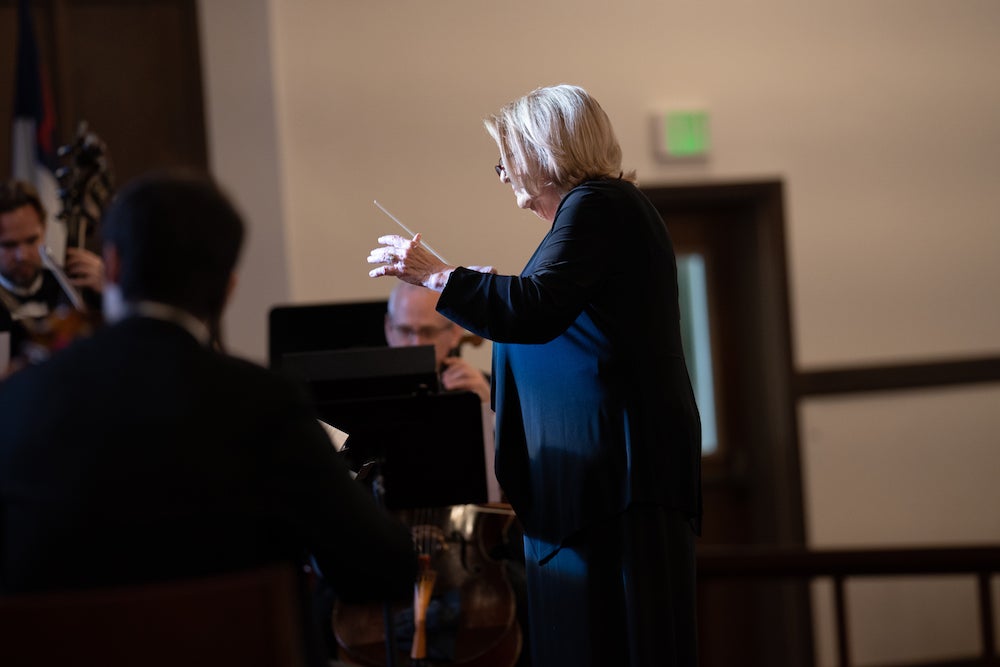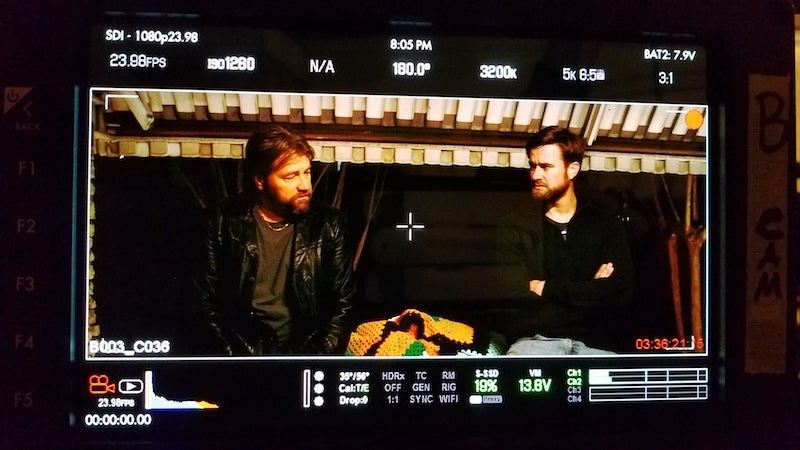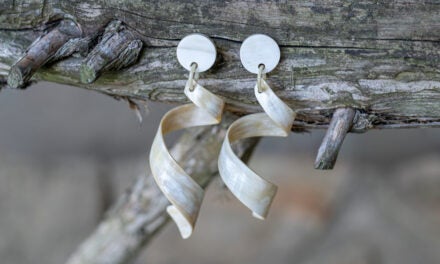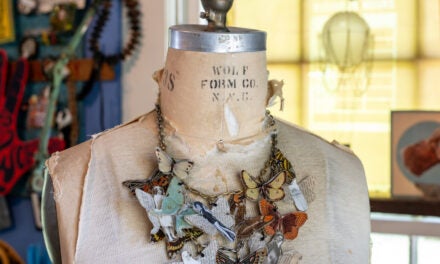By Ashley Tiedt | Photos by Kelsea Schafer
“I should be sorry if I only entertained them. I wished to make them better.” It is a quote attributed to George Frideric Handel. It is also the inspiration for the Alabama Civic Chorale. The choral group is celebrating its 75th year.
The History
The Alabama Civic Chorale performed for the first time in 1947. Bebe Kok was only a child when her parents, Earl and Frances, started the choir.
“When they first started it, they started it with a high school choir that my mother was teaching and a youth choir from a church where my father was the director of music. It was a meld of those groups,” Bebe says.
The group went to a music conference to sharpen their skills. The conference choir performed Handel’s “Messiah,” inspiring Bebe’s parents to begin something that would grow to become bigger than themselves. The singers insisted they wanted to sing it.
Not only did the choir practice the “Messiah,” they studied the Messiah, the history behind the oratorio and the scriptures.
“I was amazed at how many times they would practice during the week,” she shares. “As the group grew over the next few years, they went to different churches and to a high school to perform.”
Over the years the Alabama Civic Chorale has performed various works, but they always return to Handel’s “Messiah.” While the program may have changed through the years, the goal of the Alabama Civic Chorale has never wavered.
The chorale started with the “Messiah,” which allowed people in smaller churches to join together with the chorale to sing this oratorio and other major works.
Throughout the choir’s history, they’ve done other classics. However, it always comes back to the oratorio that started it all. The choir performs this piece every year the Sunday before Thanksgiving, which is the first Sunday in Advent.
Earl and Frances knew when they formed the choir what they wanted the group to be, and it wasn’t to be a group that required an audition. They wanted it to be a family that came together to learn the scripture, to sing the scripture and get to know what was intended by Handel—to know what was intended through the scriptures.
They intended for members and audiences alike to know the message of the Messiah, to become a family and to walk away changed by that message.
To truly understand Handel’s “Messiah,” it is important to understand how he wrote the music.
“For instance, the melancholy key of G minor for ‘Behold the Lamb of God Who Takes Away the Sins of the World’ and the praise key of D major was used when he wrote the ‘Hallelujah Chorus,’” Bebe says. “Handel painted a picture with the key signatures. When you’re talking about ‘Let Us Break Their Bonds Asunder,’ you can see bonds being broken. The first four notes of ‘And With His Stripes We Are Healed’ are the musical sign of the cross. To not understand what Handel wrote takes away half of ‘The Messiah’ itself. My feeling is if we can bring forth what Handel intended, then the people listening will catch it. They will understand it, and we would have made a difference.”

The Participants
The spirit and the members of the chorale span the state and even neighboring states. Participants have traveled from as far as Huntsville and Atlanta each Sunday to be a part of the choir. The Alabama Civic Chorale is unique in that they do not require an audition to be a part of the group. Last season the Alabama Civic Chorale boasted 95 members with more than 15 of those members being first-time participants.
From its humble beginnings, the group has always come together as a special family.
“Everyone in the group feels like family,” Bebe’s daughter and Alabama Civic Chorale Publicity Chair Jacken Stubblefield says. “I think that feeling of family comes from the fact that everyone volunteers in some way to support the success of the group. Whether it’s fundraising, publicity, setting up for rehearsals and the program, our membership committee, hospitality team or community service committees—everyone is involved. It is a team effort.”
To the chorale, the “Messiah” is not just a piece of work. It is a tradition.
“We bring everyone into the fold as part of that tradition,” Jacken shares. “When Bebe was talking about the wisdom she imparts to the singers about what they are singing about, that’s also a reason why people keep returning. It’s not just a piece of work. We’re singing the scripture, and the ‘Messiah’ is unique because everything you sing is scripture. It’s not something a composer has made up. This is literal scripture in the Bible. So, it would be a travesty to try to sing it and not know what we are singing about.”
Last year the chorale featured an original member. Shirley Daviston was a member of the first performance, standing on a box so she could be seen. Shirley took several years off, but she is back enhancing the chorale with her knowledge of the music.
The group continues to grow each year because current members invite other members.
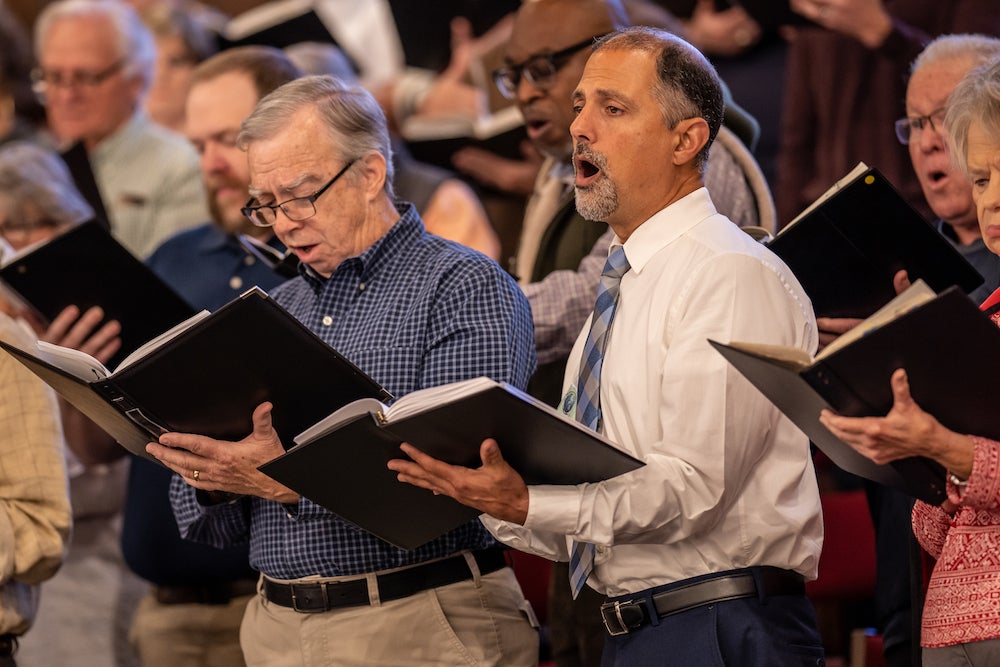
The Service
While the group is focused on performing during the holiday season, they focus on serving the community year-round, beginning the day after the performance returning to the Galleria Woods: Senior Living Community.
This was the first time the Alabama Civic Chorale performed live (at Galleria Woods) since the COVID-19 pandemic closed the community to visitors. The chorale performed several pieces from the “Messiah” as well as several carols for the residents.
“We’ve joined with high schools to do fundraisers, so they could afford instruments and supplies for their music programs,” Jacken says. “During the pandemic we went, like others, to help first responders and show appreciation. We visited the fire stations and the hospitals. This past year we collected canned goods, similar to other years for the program. Last year we had a “QR” code that took people to a website to explain Handel’s charitable spirit.”
Handel would perform benefit concerts with all the proceeds going to a children’s hospital in London. In addition to collecting canned goods, the chorale has collected children’s items such as diapers, clothing, toys and formula for the Oak Mountain Mission.
The chorale is not only trying to carry out Handel’s work, but also live out his charitable spirit by doing something for the community.
“We’ve got people in the group that will get together and get items together for different organizations,” Bebe says. “It’s really a community chorus that acts as an [outreach group], too.”
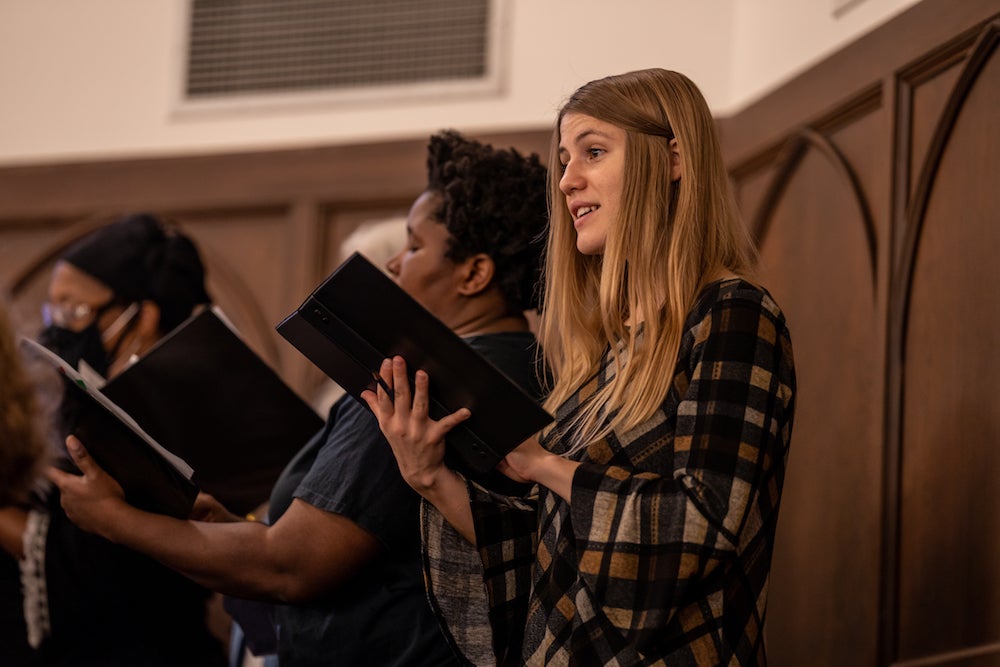
The Future
Bebe took over as the director of the Alabama Civic Chorale in 1993 after the passing of her father.
“My father died in September, and I directed in November,” Bebe shares. “It was hard, but it really was beautiful. I asked the group if they wanted it to go on, and they all said, ‘yes!’ I said, ‘Well, then let’s get started.’ I had somebody raising the money, and somebody doing the publicity.”
In 2022, Governor Kay Ivey named Nov. 20 as “Alabama Civic Chorale Day.”
Both of Bebe’s daughters, Jacken Stubblefield and Cissy Johnson, joined the chorale when they were in their early teens, as did their children after them. Jacken will continue her role as publicity chair. She says Cissy, who is the choral director at Montevallo Middle School and Montevallo High School, should be in line to be the next director because she is talented and gifted with the ability to teach.
No matter who carries on the Alabama Civic Chorale’s legacy as director, one thing remains certain: the chorale is a special family tradition that has and will carry on from generation to generation. The chorale is dedicated to serving the community and bringing cultural arts to the area and to enrich the lives of those who sing and those that hear the group.

